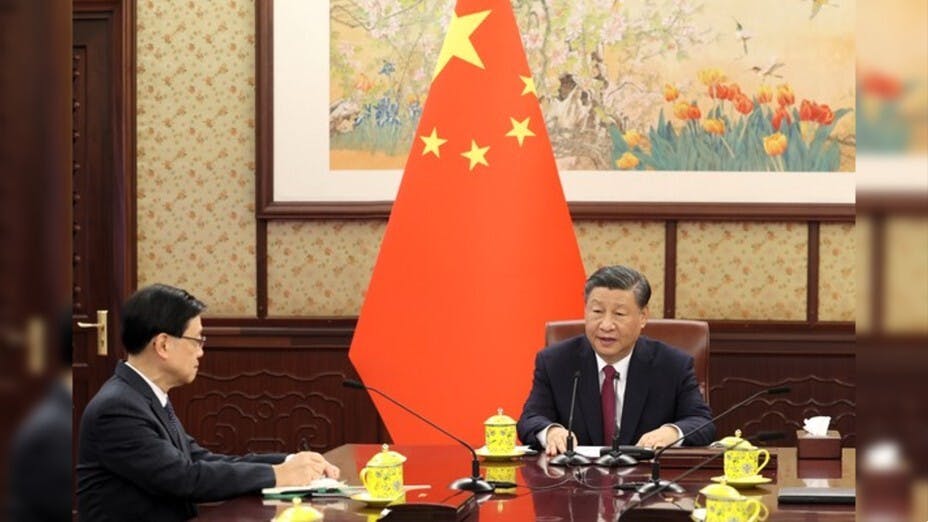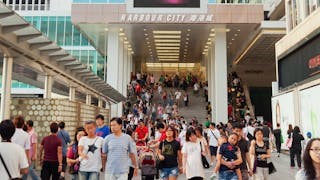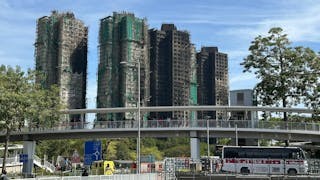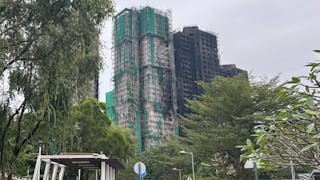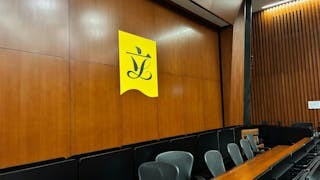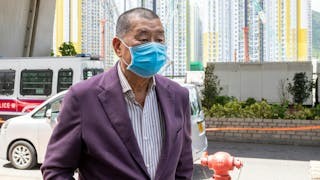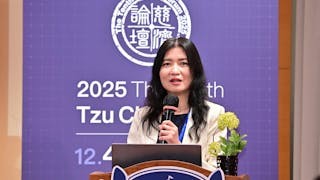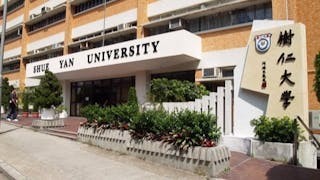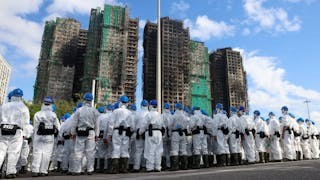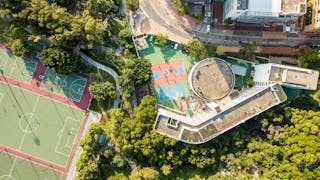自香港、澳門特別行政區成立以來,港澳兩位行政長官每年都會到北京向最高領導人述職;儘管如此,香港行政長官李家超和澳門行政長官賀一誠本月訪問北京,揭示了一些重大的延續性和變化,這些延續性和變化加起來,確立了他們向北京中央政府提交的述職報告的憲法實踐,或許會成為慣例。
特首述職座位安排有深意
12月18日,李家超向習近平主席述職,坐在中間主席位置左側的內地官員級別很高,包括國務院總理李強、中央書記處書記、中央辦公廳主任蔡奇、國務院副總理、中央港澳工作領導小組組長丁薛祥、中央統戰部長石泰峰、中央政法委書記陳文清;坐在主席右側的是香港特別行政區行政長官李家超、港澳辦主任夏寶龍、港澳辦副主任周霽、港澳辦副主任兼中聯辦主任鄭雁雄、香港特別行政區行政長官辦公室主任葉文娟。
有趣的是,內地方面高官雲集,包括國務院總理、中央辦公廳主任、中央港澳工作領導小組召集人、中央統戰部長、中央政法委書記等。這顯示中央政府對香港、澳門事務的高度重視,澳門行政長官賀一誠的述職中,也可以看到同樣的陣容和座位安排。
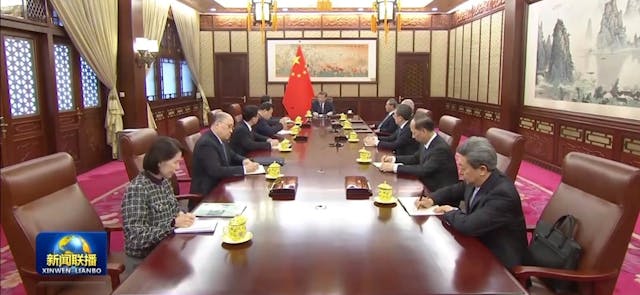
另一方面,由國務院總理陪同國家主席會見港澳兩位行政長官也是史無前例的。過去,香港和澳門行政長官往往分別會見國家主席與國務院總理。這次國家主席和國務院總理共同出席,傳達了兩個重要訊息:港澳兩位行政長官對北京整個領導班子負責,現在可以正式化、制度化,而這樣的安排也可以節省國務院總理分別會見港澳兩位行政長官的時間。
另一個明顯的安排是,坐在港澳行政長官一邊的,依次是港澳辦主任、港澳辦副主任、中聯辦主任,最後是行政長官辦公室主任。以賀一誠會見習近平主席為例,中央官員的陣容和座位安排相同,而主席的右側的安排依次是賀一誠、夏寶龍、周霽、澳門中聯辦主任鄭新聰,最後是澳門行政長官辦公室主任許麗芳。值得注意的是,只有香港和澳門的行政長官辦公室主任作為秘書出席會議,而且兩人都坐在中聯辦主任旁邊,這是行政長官對北京中央負責的一種制度化。港澳《基本法》中提到的問責機制,在2023年12月的公務訪問期間全面推行。
習近平高度讚揚港澳兩行政長官
李家超和賀一誠均受到習近平主席的高度讚揚,對他們的工作給予積極肯定,這是中央領導層支持兩位行政長官工作的重大舉措。另一個有趣的地方是,李家超提出了一份報告,據他介紹,報告談到了香港政府的工作和成就,以及即將開展的基本法第二十三條立法工作。電視中可以看到賀一誠向習近平提交了兩份報告,一份是關於澳門的報告,另一份是關於澳門經濟適度多元化計劃的報告。習近平讚揚了賀一誠的出色工作,包括肯定澳門政府修改《維護國家安全法》、《行政長官選舉法》和《立法會選舉法》、加強博彩業管理、經濟適度多元化計劃、推動澳門經濟發展等。橫琴粵澳深度合作區、拓展澳門對外關係、澳門經濟復甦與社會穩定等。

賀一誠受到國家主席讚揚如此明顯,以至於他回到澳門後,立即被傳媒問及是否參選行政長官。儘管賀一誠沒有立即給出明確答覆,但他尋求連任澳門行政長官的機會可能很大。
李家超向習近平主席提交的報告內容涵蓋維護國家安全工作、區議會選舉,以及香港如何應對疫情後的經濟復甦。根據國務院12月19日消息,習主席高度讚揚行政長官,表示他帶領香港特區政府不僅勇於擔當、取得了良好成績,而且恢復了秩序,維護了香港獨特地位和優勢。
在兩張不同的照片中,習近平主席與李家超和賀一誠握手,顯示中央當局高度讚揚他們的工作表現。
這次座位安排還有一個有趣的現象,就是港澳辦主任夏寶龍、副主任周霽及港澳中聯辦主任與兩位行政長官坐在一起,面對5位中央領導人──李強、蔡奇、丁薛祥、石泰峰和陳文清。
這項安排具有政治意義,因為這意味着港澳辦和中聯辦負責人直接向中共中央領導負責。 從某種意義上說,港澳辦和中聯辦負責人在協助港澳行政長官施政的同時,同時對中共中央領導負責,這表明黨的權威在香港和澳門的建設中得到強化和制度化。港澳辦近期改組,改組為中共中央港澳工作辦公室(見〈港澳辦的新架構及其政治影響〉,2023年11月6日,灼見名家)
夏寶龍向全體區議員講話
回想起來,2014年中首次提到中央對香港擁有「全面管治權」的概念時,很少有人理解它的意義。然而9年後,北京對港澳的「全面管治權」,現在透過多種機制實現:首先是《香港國安法》的制定和實施、澳門《維護國家安全法》的修改、香港和澳門行政長官和立法會的選舉制度、香港區議會選舉的重組、國務院國家發展和改革委員會最近公布的《澳門經濟適度多元化發展規劃》、《橫琴粵澳深度合作區發展規劃》實施,港澳經濟融入大灣區。 這些措施都是為了實現中央對港澳的「全面管治」,帶來兩地社會政治穩定和經濟繁榮,實現一國兩制的獨特性。
實現北京對港澳的「全面管治」,關鍵是要讓「愛國者」能夠管治好兩座城市。為此,兩地的選舉制度進行了改革,讓「愛國」精英能夠進入政治體系,自信穩定地執政。因此,港澳辦主任夏寶龍於12月22日在全國港澳研究會會議上,在香港新當選和任命的區議會議員面前發表講話。夏寶龍呼籲民選和委任區議員要保持團結,公務員要堅持愛國主義。
更新《公務員守則》展開諮詢
有意思的是,12月10日在區議會選舉3天後,香港政府公務員事務局就更新《公務員守則》展開諮詢,涵蓋了公務員宣誓和發表意見的要求、核心價值觀和行為標準,以及其與政治委任制度的關係。更新版《公務員守則》傾向於強調國家安全在公務員心中的重要性,也要求公務員積極回應迎市民和社會的需求,並熱心提供公共服務。
事實上,夏寶龍12月22日發言的訊息很明確:香港各界人士,包括民選和任命的官員和公務員,必須團結起來,維護國家安全,支持中央政府為一國兩制的成功作出貢獻。
港澳與中央關係新篇章
綜上所述,香港和澳門行政長官於2023年12月18日到北京進行公務訪問並述職,可以說是香港、澳門特別行政區與北京中央政府關係的新篇章。此次年度訪問及其相關報告和座次安排,充分體現了北京對港澳的「全面管治權」。公務訪問和述職是港澳兩個特別行政區行政長官依照香港、澳門《基本法》的要求向北京負責的必要和重要機制。座位安排則體現了中國共產黨領導層監督兩任行政長官、香港和澳門兩個特區政府、港澳辦和港澳中聯辦主任工作的適當禮儀和正式報告機制。在法律和政治研究中,法學學者提出「憲法慣例」的概念,指的是一系列在一個持續時期內採取的憲法實踐。如果是這樣,香港和澳門行政長官2023年12月對北京的公務訪問和述職,在政治和憲法上都是非常重要的,因為這些都是相對較新的憲政實踐,如果在未來幾年持續下去,將成為香港和澳門兩個特別行政區與北京中央政府之間的憲法慣例。
An Analysis of the Constitutional Practice of Chief Executive’s Duty Visit and Report to Beijing
Since the establishment of the Hong Kong and Macau Special Administrative Regions, the Chief Executives of Hong Kong and Macau have annually visited the central authorities in Beijing and submitted their duty report to the top leaders; nevertheless, the most recent visits by Hong Kong Chief Executive John Lee and Macau Chief Executive Ho Iat Seng to Beijing in December 2023 revealed some significant continuities and changes that altogether are establishing the constitutional practices, and perhaps later convention, of their duty report submitted to the Central Government in Beijing.
On December 18, when John Lee reported to President Xi Jinping on his work, the mainland officials sitting on the left hand side of the middle position of the President were of very high level, including Premier Li Qiang, the Central Secretariat party-secretary and Central Office director Cai Qi, Vice Premier and convenor of the Communist Party of China (CCP) Central Hong Kong and Macau Work Leading Small Group Ding Xuexiang, United Front Department minister Shi Taifeng, and Political and Legal Affairs Commission secretary Chen Wenqing. Sitting on the right-hand side of the President were Hong Kong Chief Executive John Lee, Hong Kong and Macau Office (HKMAO) director Xia Baolong, HKMAO deputy director Zhou Ji, HKMAO deputy director and Liaison Office director Zheng Yanxiong, and Hong Kong Chief Executive Office director Carol Yip Man Kuen.
What is interesting in this set-up was that the mainland side was filled with top officials, including the Premier, Central Office director, convenor of the leading small group on Hong Kong and Macau, united front work minister, and political and legal affairs director. This meant that the central government attached immense importance to Hong Kong and Macau affairs, as the same line-up and sitting arrangement could be seen in the duty report made by Macau Chief Executive Ho Iat Seng.
Furthermore, the elevation of the Premier to accompany the President to meet the two Chief Executives from Hong Kong and Macau was unprecedented. In the past, the Hong Kong and Macau Chief Executives tended to meet the Premier separately from the President. This time, the co-attendance of the President and the Premier had two important messages: the accountability of the Hong Kong and Macau Chief Executives to the whole batch of Chinese leadership in Beijing could now be formalized and institutionalized. This set-up could also save the time of the Premier in meeting the Chief Executives from Hong Kong and Macau separately.
Another significant indication is that accompanying the Chief Executive of Hong Kong and Macau were, firstly the HKMAO director, secondly the HKMAO deputy director, thirdly the Liaison Office director, and finally the Chief Executive Office director. In the case of Ho Iat Seng’s meeting with President Xi, the mainland side had the same line-up and seating arrangement, while the right-hand side of the President included firstly Ho Iat Seng, secondly Xia Baolong, thirdly Zhou Ji, fourthly Liaison Office director Zheng Xincong, and finally Chief Executive Office director Hoi Lai Fong. What is noteworthy that only the directors of the Chief Executive Office from Hong Kong and Macau attended the meeting as secretaries and both sat beside the Liaison Office director – a kind of institutionalization of the accountability of the Chief Executive to the central authorities in Beijing and an accountability mechanism mentioned in the Basic Law and currently practiced in full swing during the December 2023 duty visit.
Both John Lee and Ho Iat Seng were praised by President Xi, who affirmed their work positively – a significant move pointing to how the central leadership supports the work of the two Chief Executives. Another interesting point is that John Lee presented one report that, according to him, talked about the work and achievements of the Hong Kong government and the forthcoming work about the legislation on Article 23 of the Basic Law. Ho Iat Seng was seen in the television as submitting two reports to President Xi, one report on Macau and the other on its economic diversification plan. President Xi praised Ho’s good work, including the affirmation of the Macau government’s amendment of the national security law, the legislation concerning Chief Executive election and the Legislative Council election, the consolidation of management over the gaming industry, the economic diversification plan, the promotion of the construction work on the Hengqin-Macau Cooperation Zone, the expansion of Macau’s external relations, and the economic recovery and societal stability of Macau.
Ho’s praise by the President was so prominent that, immediately after his return to Macau, he was asked by the mass media on whether he would run for the Chief Executive election. Although Ho did not give a firm answer immediately, his chance of running for the forthcoming Chief Executive election in Macau would likely be high.
John Lee’s report to the President covered the consolidation of national security work, the District Council election and how Hong Kong dealt with post-Covid economic recovery. President Xi, according to the State Council press release on December 19, highly praised the Chief Executive, saying that he led the HKSAR government in not only shouldering the responsibilities and delivering good results, but also restoring order and maintaining Hong Kong’s distinctive status and advantages.
President Xi was seen to shake hands with both John Lee and Ho Iat Seng in two separate photos – an indication that the central authorities highly lauded their performance.
Another interesting observation from the seating arrangement this time is that Xia Baolong, the HKMAO director, and his deputy Zhou Ji as well as the Liaison Office directors of both Hong Kong and Macau were sitting together with the two Chief Executive while facing the top five leaders of the central leadership – Li Qiang, Cai Qi, Ding Xuexiang, Shi Taifeng and Chen Wenqing.
This arrangement is politically significant because it means that the HKMAO and the Liaison Office chiefs are directly accountable to the central leadership of the CPC. In a sense, while the HKMAO and the Liaison Office chiefs are assisting the Chief Executives of both Hong Kong and Macau in terms of governance, they are simultaneously accountable to the central CPC leadership – an indication that the Party’s authority has been strengthened and institutionalized in the recent revamp of the HKMAO, which has been reorganized as the Hong Kong and Macau Work Office under the Central Committee of the CPC (see commentary on November 5, 2023, in OPINION – The new structure of HKMWO and its political implications | Macau Business).
In retrospect, when the concept of the central government’s “comprehensive jurisdiction” over Hong Kong was first mentioned in mid-2014, very few people understood what it meant. Nine years later, however, Beijing’s “comprehensive jurisdiction” over Hong Kong and Macau is now realized through various mechanisms: firstly the enactment and implementation of the national security law in Hong Kong, the amendment of the national security law in Macau, the revamp of the electoral system for the Chief Executive and Legislative Councils in both Hong Kong and Macau, the reorganization of the District Council election in Hong Kong, the most recent publication of the Master Plan on Macau’s economic diversification by the State Council’s State Planning and Reform Commission, the implementation of the Hengqin-Macau Cooperation Zone, and the economic integration of both Hong Kong and Macau into the Greater Bay Area. All these measures have been taken to realize the central government’s “comprehensive jurisdiction” over Hong Kong and Macau, bringing about the socio-political stability and economic prosperity of the two cities and realizing the uniqueness of the “one country, two systems.”
The key to realize Beijing’s “comprehensive jurisdiction” over Hong Kong and Macau is to ensure that the “patriots” can and will govern the two cities. As such, electoral systems in the two places were reformed so that the “patriotic” elites can enter the political system and govern with confidence and stability. This was why Xia Baolong, the HKMAO director, delivered a speech on December 22 in the meeting of the Hong Kong and Macau Study Association in front of a group of newly elected and appointed District Councils members in Hong Kong. Xia appealed to the elected and appointed members of District Councils the need to maintain solidarity, and to the civil servants the necessity of sticking to patriotism.
What was interesting in Hong Kong’s development was that, three days after the District Council election on December 10, the government’s Civil Service Bureau published a consultative document on the Civil Service Code, covering the oath-taking and declaration requirement of civil servants, their core values and standard of conduct, and their relationship with the political appointment system. The draft Civil Service Code tends to emphasize the importance of national security in the psyche of civil servants, who are also expected to be responsive to the needs of the citizens and society and to be enthusiastic in the delivery of public services.
In fact, Xia’s message on December 22 was clear: the people of Hong Kong from all walks of life, including elected and appointed office-bearers and civil servants, have to be united, to protect national security, and to support the central government’s “comprehensive jurisdiction” over Hong Kong for the sake of contributing to the success of “one country, two systems.”
In conclusion, the duty visits and reports made by the Chief Executives of Hong Kong and Macau to Beijing on December 18, 2023, could be regarded as a new chapter in the relationships between the two special administrative regions and the central government in Beijing. The annual visit and its related reports as well as the seating arrangements fully realized Beijing’s “comprehensive jurisdiction” over Hong Kong and Macau. The duty visit and report are the necessary and important mechanisms through which the Chief Executives of both Hong Kong and Macau are held accountable to Beijing in accordance with the requirement of the Basic Law of Hong Kong and Macau. The seating arrangements illustrated the proper etiquette and formal reporting mechanism through which the CPC leadership oversees the work of the two Chief Executives, the two governments of Hong Kong and Macau, the HKMAO and the Liaison Office directors who are appointed to deal with the affairs of both Hong Kong and Macau. In the study of law and politics, legal scholars have advanced the concept of constitutional convention to refer to a series of constitutional practices adopted for a sustained period. If so, the duty visit and reports made by the Hong Kong and Macau Chief Executives to Beijing on December 2023 were politically and constitutionally very significant, because these are relatively new constitutional practices that, if persisting in the years to come, will become the constitutional convention between the Hong Kong and Macau Special Administrative Regions on the one hand and the central government in Beijing on the other hand.
原刊於澳門新聞通訊社(MNA)網站,本社獲作者授權轉載。原文網址:



